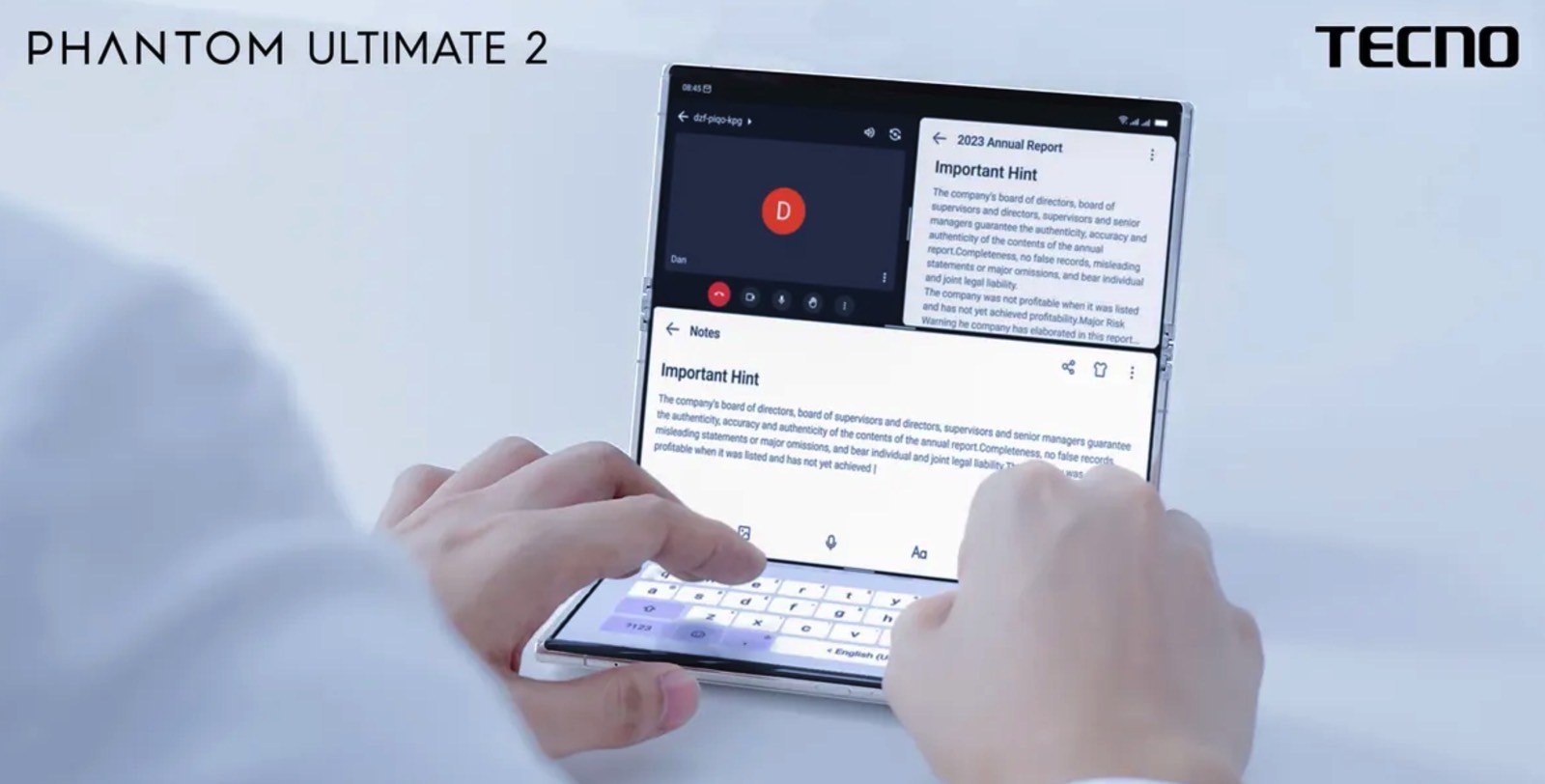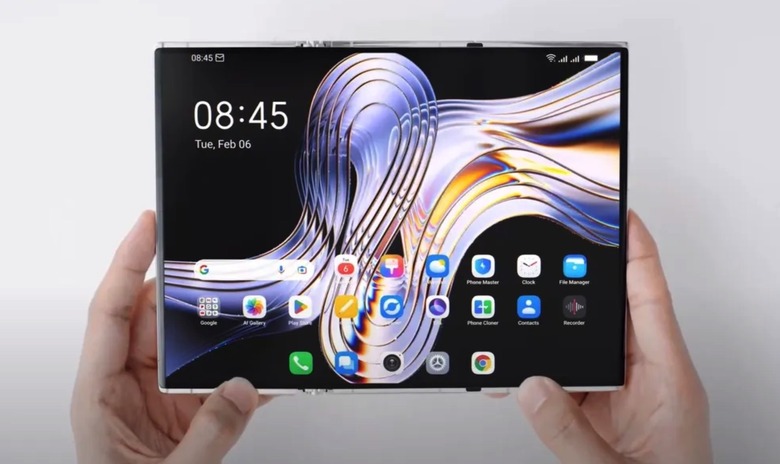Here's Why I Want A Foldable iPad Before A Tri-Fold Smartphone
I'm a fan of foldable devices, and I thought the Tecno Phantom Ultimate 2 concept (pictured above) was exciting when I first saw it last week. While the Tecno phone will not get a commercial release, Huawei is about to launch a similar phone of its own.
The Chinese handset vendor will challenge the iPhone 16 launch event by holding a press event on the same day. The Huawei Mate XT will reportedly feature a 10-inch screen and cost about $4,000. It'll likely only be available in China initially.
Now that I've had more time to consider it, I've changed my mind. Yes, these tri-fold phones will be amazing feats of engineering, packing sophisticated components that let you turn a traditional phone into a 10-inch tablet. They're exciting because the companies making them will come up with many innovations that will be useful elsewhere.
I would not want to use a tri-fold foldable, however. You know what would be even cooler than that? A foldable iPad that could double as an iPhone.
Tecno's tri-fold is proof that you can make foldable devices that feature two hinges and three screen regions. The phone packs a high-end display and incredibly thin batteries. The cameras on the back are also quite thin. When folded, the Tecno tri-fold is thinner than a folded Galaxy Z Fold 6, which is saying something.
All that innovation comes with a price. There's a reason Tecno won't be selling the Phantom Ultimate 2. The point is to prove that Tecno is able to create high-end, complex hardware. Tecno demoed its phone before Huawei got a chance to send out invites for its tri-fold phone launch event.
I expect Huawei's phone to match Tecno's innovation. It has to be as thin as possible. It also has to feature a high-end display and a good-enough camera module on the back.

But I have to say I'd be even more concerned about the durability of such a device. Tecno said its tri-fold phone would feature a state-of-the-art hinge design. The dual-hinge system would support 2,100Mpa strength and over 300,000 folds.
Even so, I don't want to imagine what happens when you drop an ultra-thin tri-fold phone. How do you protect the screen in any way? After all, if rumors are correct, the Mate XT will cost about twice as much as the Galaxy Z Fold 6. If they're wrong, I still expect a price of well over $2,000, which is what the Fold 6 costs.
Why pay that much money for a device with so many moving parts? Yes, dual-fold foldable like the Galaxy Z Fold 6 also risk breaking. But they feature fewer moving parts. Also, current foldable phones only have a single crease we have to get used to. There is no point in dealing with two creases, which will happen with tri-fold devices.
That said, I do think there's a future for larger foldable devices. A few years ago, I said that the 8.3-inch iPad mini 6 is the perfect device to turn into a foldable iPhone. Now that the thin M4 iPad Pro exists, I'd want to be able to fold an 11-inch iPad Pro into something smaller.
Since then, the M4 iPad Pro has proved that Apple can make incredibly thin devices. That's a key detail for dual-foldable phones. Then again, the thickness of a foldable iPad would not matter as much.
The whole point of a tri-fold phone is to be more productive and enjoy better entertainment on the go. But an 8- to 11-inch foldable tablet would be so much better. It would rock a laptop-grade chip rather than a mobile one and more RAM. Add a SIM card, and the foldable tablet becomes a phone as long as you use VoIP apps with it.
Sure, you'd have to carry a foldable iPad in a bag rather than your pocket. But I'd still take that over a tri-fold phone.
Interestingly, rumors do say that Apple will release a foldable iPad before a foldable iPhone. That device is often called a foldable MacBook, as it should feature a much larger screen than an iPad Pro or iPad mini. Still, I'll probably buy a foldable MacBook/iPad before considering a tri-fold phone.
As for a foldable iPhone, I certainly wouldn't mind if Apple were to create a clamshell foldable like the Galaxy Z Flip 6.
